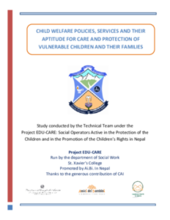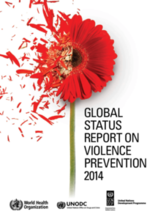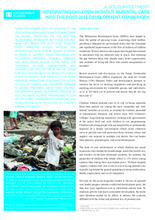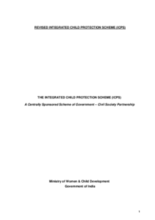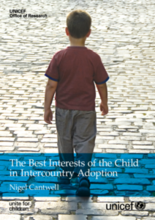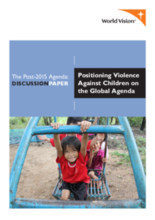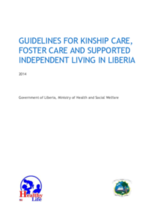Displaying 1171 - 1180 of 1798
This report is based on a synthesis of eight assessments of the implementation of the Guidelines for the Alternative Care of Children (“the Guidelines”) in Benin, Gambia, Kenya, Malawi, Tanzania, Togo, Zambia and Zimbabwe.
The Technical Team under the Project “EDU-CARE: Social Operators Active in the Protection of the Children and in the Promotion of the Children’s Rights in Nepal” reports on the child care practices, policies, and programs currently in effect in the country.
This report from the World Health Organization provides an overview of the progress countries have made in implementing the recommendations set out in the World Report on Violence and Health in 2002.
In this paper, SOS Children’s Villages demonstrates how children who lack or are at risk of losing parental care are highly vulnerable to various forms of poverty and inequality. The paper proposes operational strategies for action as well as targets and indicators designed to monitor progress among these children.
This moving short film (7 mins) produced by MenCare examines the circumstance of one man who found himself as the primary caregiver to his children when his female partner moved abroad for work.
The Integrated Child Protection Scheme (ICPS) of India outlines, and contributes to the implementation of, the Government’s responsibility to establish an effective and efficient child protection system.
The purpose of this integrative chapter on well-being and the family is to present the analysis of a number of family-based factors that can influence child well-being.
This study, conducted by Nigel Cantwell and UNICEF, seeks to answer the question: “what is it that enables a policy, process, decision or practice to be qualified as either respectful or in violation of the best interests of the child in intercountry adoption?”
World Vision is publishing this paper to inform current strategic discussions which seek to ensure that ending violence against children (VAC) remains on the post 2015 global development agenda.
The Guidelines for Kinship Care, Foster Care and Supported Independent Living in Liberia are intended to provide harmonized national guidance for child welfare practitioners in order to improve the quality of family-based alternative care services in Liberia, particularly for children without appropriate care (CWAC).

